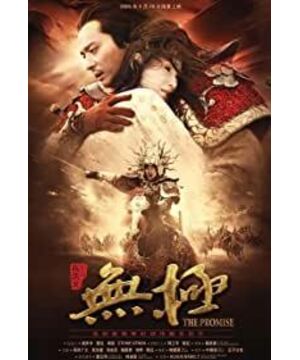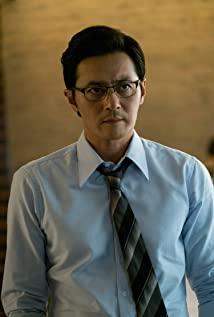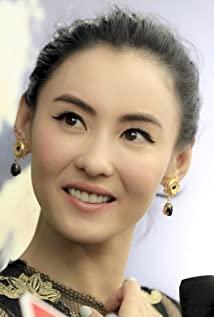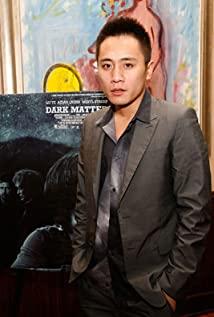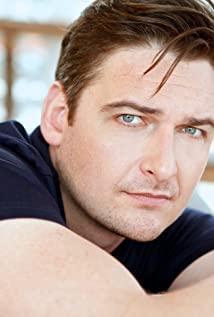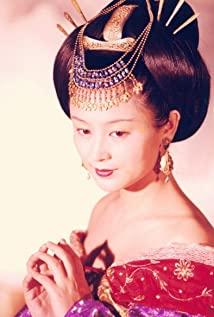Fifteen years later, the name of the film "Promise" once again appeared in front of the public.
In "Actors In Place 2", for the "Promise" segment performed by the young actor, Li Chengru said that because of the negative comments at the time, he had not seen the movie, and because of this movie, Chen Kaige's later films did not Dare to see.
In this regard, Chen Kaige on the stage disregarded his demeanor, used yin and yang strange language, and used swear words without a single swear word to attack Mr. Li Chengru's birth and hobbies in an all-round way——
He is relatively conservative. This child of the Liyuan family, who came out of a closed world, doesn't care much about the progress of that world. As long as Xipi Erhuang sounded, Hu Qin pulled, his eyes closed, and his head shook, the drama would come.
Director Er Dongsheng, who was sitting beside him, has been allaying the awkward atmosphere, but his face sank when he heard Chen Kaige's eloquent guidance.
Because this is tantamount to pointing at someone's nose and scolding:
You old man at sunset, who lives in the old times, it's not that my movies are too bad, it's that you are too backward to understand me.
And Chen Kaige may have forgotten that from his debut to the present, he has always been an important representative of Liyuan art. From "Farewell My Concubine" to "The Legend of the Demon Cat", Liyuan has always been rooted in Chen Kaige's art works, but for a bad movie, He actually went to evaluate a Liyuan disciple as "the glory of the past".
Obviously, "The Promise" may be the pain point of Chen Kaige's life, and it is also his untouchable scale.
Perhaps mentioning other movies, Chen Kaige can still speak with a smile on his face, but only "The Promise" can't.
Back then, for the sake of "Promise", Chen Kaige ran into the air, from his former friend Reed to the little reporter Liu Yan, no one could say a bad word about "Promise".
Even disregarding his own identity, a lawsuit brought Hu Ge, who was in his twenties, to the court.
Maybe for Hu Ge, this is the real "blood case caused by a steamed bun".
Chen Kaige once said that no one can understand this movie in five years.
So today, after fifteen years, is "Wuji" a bad movie?
01.
Fourteen From its own point of view, "The Promise", the originator of the bad film, is still a downright bad film.
And the scope of this film's rottenness is so wide and its influence is profound, I am afraid it is not just as simple as "a steamed bun".
You may wish to recall the excellent domestic films in the past ten years——
There is the sci-fi film "The Wandering Earth", the comedy "Charlotte Troubled", the cartoon "Nezha's Devil Child Comes to the World", and the drama "I Am Not the God of Medicine", but it is not the only one missing an important branch. ?
Magic movie.
Chen Kaige's positioning of "The Promise" is a Chinese epic original magic blockbuster, and this positioning has directly led to the fact that there has never been an epic magic movie in China since then, making the entire type of film almost "extinct" in China.
It's not that without fantasy movies, Chinese movies lack arms and legs, but for some fans who like "The Lord of the Rings", "Harry Potter" and "The Hobbit", they can't see domestic fantasy movies. a pity.
In China's film and television sector, capital and audience are mostly antagonistic.
Bad film, small investment, quick return on capital, audience hates it, and capital loves it.
But in the movie "Promise", it is extremely rare for capital to stand with the people.
Because this movie is very likely to lose everything, and the underpants for compensation are gone.
The final global box office of "The Promise" was about 220 million RMB, but his investment cost, according to online sources, reached 340 million.
Maybe there is no evidence for this news, but the most direct manifestation is that since Chen Kaige made what he called "China's first original magic movie", no investor has dared to touch the Chinese magic theme.
And after Chen Kaige made "the first magic movie", he never made a magic movie again.
It can be said that this first film is Juesheng, which completely closed the door of Chinese magic movies.
You may think that most of the audience does not understand the appreciation of "advanced art", and the staff and actors involved in the production of the film may have different views.
But what is certain is that the Shangri-La Scenic Spot, where "The Promise" was filmed, is by no means among them.
After the filming, some media reported that the film production team had seriously polluted the scenic spot, destroyed the natural ecology of Shangri-La Sacred Lake, and left the Sacred Lake with untold pain.
For the sake of so-called art, Director Chen arbitrarily cut down trees and destroyed vegetation in the scenic area, and discarded domestic garbage at will, turning the sacred place in the hearts of local residents, Bigu Tianchi, into a horrific natural garbage dump.
02.
Then, Fourteen wanted to go back to the movie itself and talk about it.
The movie "The Promise" has a high threshold for viewing, but this does not mean that the movie is obscure and has many details, but that the movie is too convoluted.
In order to show off his skills, director Chen Kaige forcibly added three story lines to the 121-minute movie, and the characters interspersed with each other, causing the audience to not even remember the name and plot, and they were dizzy by the camera.
In fact, the story of the whole movie, the ancient ghost and animal work "The Blood Case Caused by a Steamed Bread" is quite clear-
A love story between a woman destined to never fall in love and three men: the general is wrong love, the slave is true love, and the pervert is hate love.
To put it simply, the heroine Qingcheng deceived Wuhuan because of a steamed bun when she was a child, and was favored by the goddess of fate in the process of escaping, and gained glory and wealth at the cost of losing love.
The little girl grew up and became a princess, and while General Guangming was fighting outside, Jue Bei Gong Wuhuan killed the palace and besieged the king and the princess.
General Guangming ordered the slave Kunlun to put on his flower armor to rescue the princess.
After the rescue was successful, the princess mistook Kunlun for the light.
At the time of Guangming and Qingcheng, Wuhuan trapped them with Kunlun again, and the princess finally realized that she loved the wrong person.
After confirming each other's sincerity, Wuhuan put the light on, hung Kunlun from a tree, tied Qingcheng to a chair, and placed a large plate of fruit cakes beside him.
He says:
"You know why I do all this? Because you cheated me with that steamed bun. I'm going to let you two watch each other die."
In the end, the general Guangming found that he also loved Qingcheng, and suddenly repented and fought with Wuhuan, and both died in battle.
And the slave Kunlun took Qingcheng to travel back to "the day when the steamed bread caused the bloody murder" to change the future.
At this point, the movie ends.
After listening to the outline of the fourteenth story, did you find any problems?
Who is the first male lead?
According to the film introduction and theme, Kunlun is the first male protagonist, but according to the plot, Kunlun is just a tool from beginning to end——
He first helped General Guangming to save the princess, then let Wuhuan tell the secret of steamed buns that he had hidden for many years, and finally took the princess to travel back.
What about his own plot?
Chen Kaige directly summed up Kunlun's past and present life in just a few minutes of memories, and he didn't have as much thought on the supporting roles.
And the culprit is the multi-line story directed by Chen Kaige. The film has maintained a two-line plot for the first 33 minutes, namely the Qingcheng line and the Kunlun line. By 33 minutes, the two story lines finally intersected.
but!
The film was separated again at 37 minutes because Kunlun jumped off a cliff. You don't have to doubt that the male and female protagonists only met for four minutes before they separated again and started their respective journeys.
In the end, it was not until the end that they finally met.
This directly leads to different male protagonists every time——
In the early stage, it was Kunlun, in the middle stage, it was bright, and in the later stage, it was Wuhuan.
Everyone fought their own way, and finally put the three story lines together by deadlifting, and the total time was only 6 minutes——
In six minutes, Kunlun got the armor, Kunlun went to Qingcheng, Kunlun and Qingcheng rescued Guangming, Wuhuan tried Guangming to kill the king, Kunlun told the truth (killed it by himself), Qingcheng and Guangming broke up, and Kunlun and Guangming were tried.
All of these things happened in just six minutes.
Because of the length of the film and the ability of the director to write, the whole story is messy and scattered, which is completely different from Nolan Jiang Wen's brain-burning film, which requires the audience to pay attention to details, but the film itself cannot tell a story clearly.
Some people may say, is this a big heroine movie?
It's a pity that this is even less likely to be a movie with Allure as the main point of view.
As mentioned above, the protagonist of "Promise" is Kunlun in the early stage, Guangming in the middle stage, and Wuhuan in the later stage.
And Qingcheng's role in the first, middle and last three episodes is not comparable to any male character. If Kunlun is a tool person, then Qingcheng is a vase. Her biggest role is to rationalize the whole story, and then A little logic.
That is, there is her everywhere in the movie, but it is the same without her. All stories are forced to happen, and they never do anything on their own initiative.
Of course, you can say that this has something to do with Chen Kaige's implementation of the theme of the whole movie, "Fate". People are helpless in the face of fate.
Then if you talk about this, I won't be sleepy-
There are many movies about fate. The most familiar to the public should be Stephen Chow's "Journey to the West" series. In the play, the supreme treasure changes fate many times through the moonlight treasure box, but after all, it is still wrong with Zixia and becomes a pawn of fate. He became the Monkey King Monkey King who was "like a dog" in the words of the Sunset Warrior and Zixia.
What is destiny?
It was the moment when the Supreme Treasure went through several times and still could not change his destiny, and finally chose to wear the golden hoop.
What sorrow in life, what pain in death.
Destiny, it's not that the little girl dropped the steamed buns into the pool, and then a goddess suddenly appeared to give you a multiple-choice question——
To love or to be rich?
Destiny, not when the light returns to the king's city, the goddess appears again and tells you that you will kill the king.
This is not destiny, but prophecy.
And even if it's a prophecy, the movie is illogical --
Who is the Goddess Manshen (the goddess of fate)? Why come and go? She appeared twice in the whole article, and after giving two multiple-choice questions, why did she disappear without a trace?
You won't find the answers to these questions in the movies.
03.
The rottenness of "The Promise" is full of blooming, it is a rottenness that has no dead ends in all directions.
If you want to make a pentagonal analysis chart for it, it must be "full marks" for each item.
The character design is flat, the shape is bizarre, the lines are inexplicable, and the plot is intricate.
Chen Kaige said that no one understood this movie in five years, but fifteen years later, I still don't understand it.
After all, you made a table of stinky dishes, I can't hold my nose and say it's delicious, right?
In "Actors, Please Take Your Place 2", because of Li Chengru's blunt words, Chen Kaige's unbearable praise and secret criticism made Li Chengru only smile wryly, shake his head and sigh, while Er Dongsheng remained silent. .
Obviously, Li Chengru's sentence "form is greater than content" directly exposed Chen Kaige's old background and made him lose face.
As a self-proclaimed "epic magic blockbuster", the whole 121 minutes are about the love story of a woman and three men.
Excuse me, who watches fantasy blockbusters to watch love stories? Don't we watch "Lord of the Rings" and "Harry Potter" because we envy and yearn for that magical world?
Chen Kaige's arrogance and arrogance made him not admit his failure, and even dismiss the judgments of others.
And I still have to say-
Wuji, it's really bad.
Author: Fourteen Fourteen
Public Number: Fourteen Fourteen
View more about Wu ji reviews


